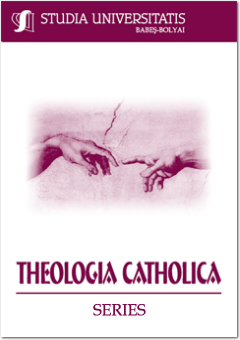PATTERNS OF THE RELIGIOUS COPING IN EASTERN ORTHODOX SPIRITUALITYe
PATTERNS OF THE RELIGIOUS COPING IN EASTERN ORTHODOX SPIRITUALITY
Author(s): Gabriel RomanSubject(s): Christian Theology and Religion
Published by: Studia Universitatis Babes-Bolyai
Keywords: religious coping; spirituality; Jesus Christ; prayer; palliative care; eastern orthodox pattern.
Summary/Abstract: Patterns of the Religious Coping in Eastern Orthodox Spirituality. Coping refers to constructive or adaptive strategies, to reduce stress level. When the patients are facing a terminal illness, they use cognitive and behavioral techniques in order to minimize or reduce stress or challenges. The objective of this study is to describe the role of Eastern Orthodox faith in positive patients’ end-of-life decisions. The Eastern Church did not develop any secular concepts regarding medical or psychiatric care, but a therapy of the soul itself. Convincing someone to despise death is (something) far greater than escaping death. Christ’s example as a model of an appropriate religious coping expresses the absolute confidence in Father. The true Christian life is not satisfied with the assumption that God is somewhere in heaven, Christianity is about living and permanently improving the relationship with Christ, although it can be difficult for someone to feel the presence of God. The way of augmenting the presence and the joy of Christ in the patient’s life is prayer. Suffering increases the ability to pray. The prayer of Jesus, constantly repeated, helps the patient discover the source of peace and hope. The Sacraments - Confession, Communion and Unction – performed by a priest, provide a high level of positive religious coping, valuing the pain and reducing the fear of death. The end-of-life quality may be optimised by a patient’s belief in a forgiving God and impeded by a patient’s interpretation of the terminal disease as a punishment. However, some religious practices can be considered maladaptive coping strategies, such as hysterical praying for a miracle, questioning God’s love and loss of hope in a beneficial outcome. Health-care providers need to consider patients’ spiritual beliefs and incorporate them into discussions about terminal care.
Journal: Studia Universitatis Babes Bolyai - Theologia Catholica
- Issue Year: 57/2012
- Issue No: 3-4
- Page Range: 41-52
- Page Count: 12
- Language: English

